BONES AND ALL (2022)
Two young lovers on the road in 1980s America share a horrific secret...
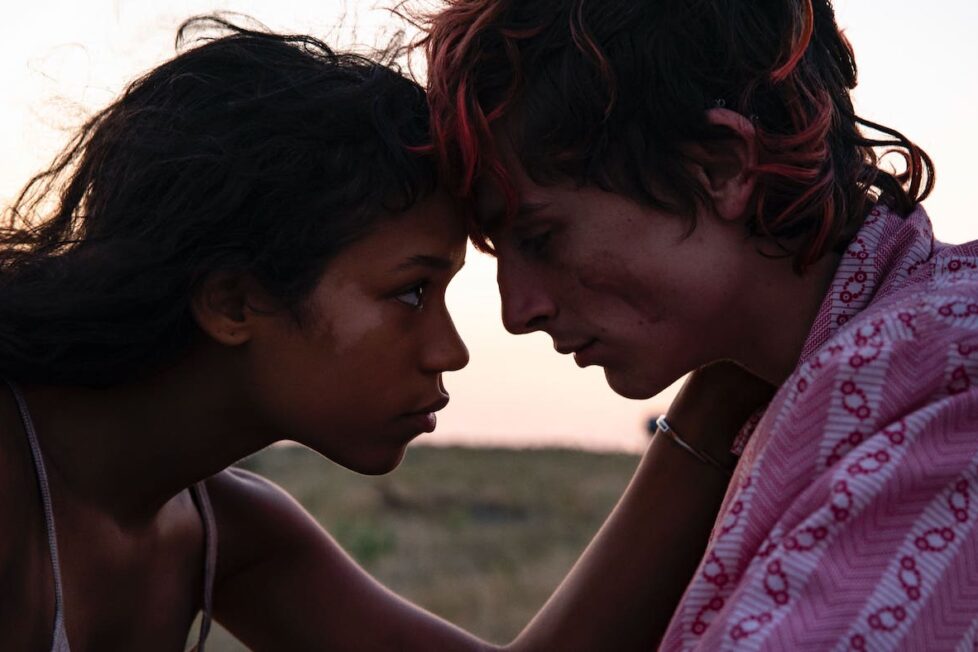
Two young lovers on the road in 1980s America share a horrific secret...


Touching and convincing performances from Taylor Russell and Timothée Chalamet (both vulnerable but anxious not to show it), and scene-stealing support from the much older Mark Rylance (more flamboyant but equally in need of love), amply compensate for some thematic incoherence in Luca Guadagnino’s Bones and All, based on Camille DeAngelis’s novel.
In 1980s America, teenage Maren (Russell) is at a sleepover with friends, lying under a coffee table with another girl while they chat; Maren eyes the other girl and seems to sniff her, and the atmosphere takes on an erotic charge… until Maren bites her, savagely, before closing her own eyes in rapture.
The mood immediately changes from sensuous languor to panic as Maren’s father (André Holland), learning of the incident when his daughter arrives home, tells her they have to leave, now. Sometime after this (the movie’s timeline is a tad confusing, though it’s not crucially important), Maren’s father abandons her, leaving only her birth certificate, a little money, and a cassette tape (helping to pinpoint the era) on which he relates her shocking history: since early childhood, she’s been an occasional cannibal. He believes she can’t help herself and has tried to protect her from discovery, but now feels he can do no more and Maren’s on her own.
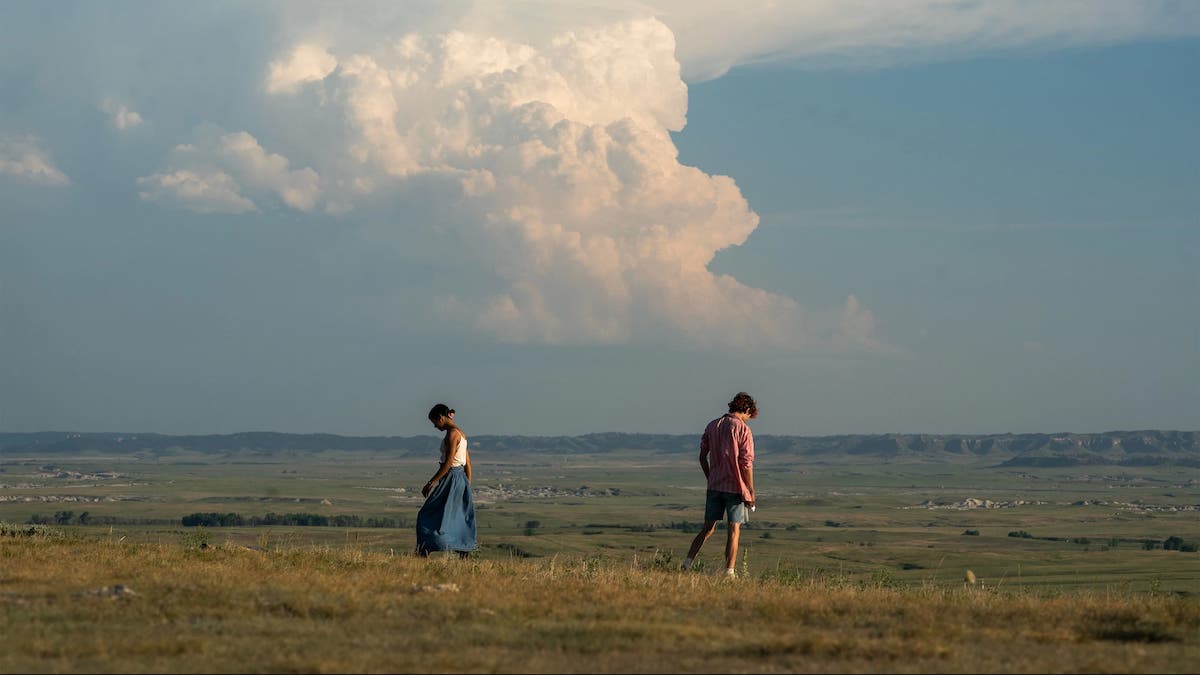
Maren’s birth certificate, however, gives her some clue to her long-departed mother’s location, so Maren sets off to find her. En route she soon encounters Sully (Rylance), an odd middle-aged man who reveals that he too is an “eater” and seems determined to befriend her as well as teach her some tricks of survival. ‘Never eat an eater’ is a golden rule, for example, and eaters have a heightened sense of smell. This is one of many ways in which the premise of Bones and All clearly resembles vampire lore, although there are no suggestions eaters are supernatural and Guadagnino’s film fits comfortably into the modern vampire tradition of movies like Neil Jordan’s Interview With the Vampire (1994) and Tomas Alfredson’s Let the Right One In (2008). There is a flavour of literary works like Poppy Z. Brite’s novel Lost Souls, too.
Sully remains an important figure throughout Bones and All, but the encounter that sets up the film’s main storyline comes shortly afterwards at a supermarket where Maren meets Lee (Chalamet), a young man just a few years older than her who’s also an eater, apparently living on his wits but with sporadic contact with his family. Together they travel cross-country in search of Maren’s mother, inevitably falling in love on the way, and dining on human flesh (as well as some normal food) whenever they have to.
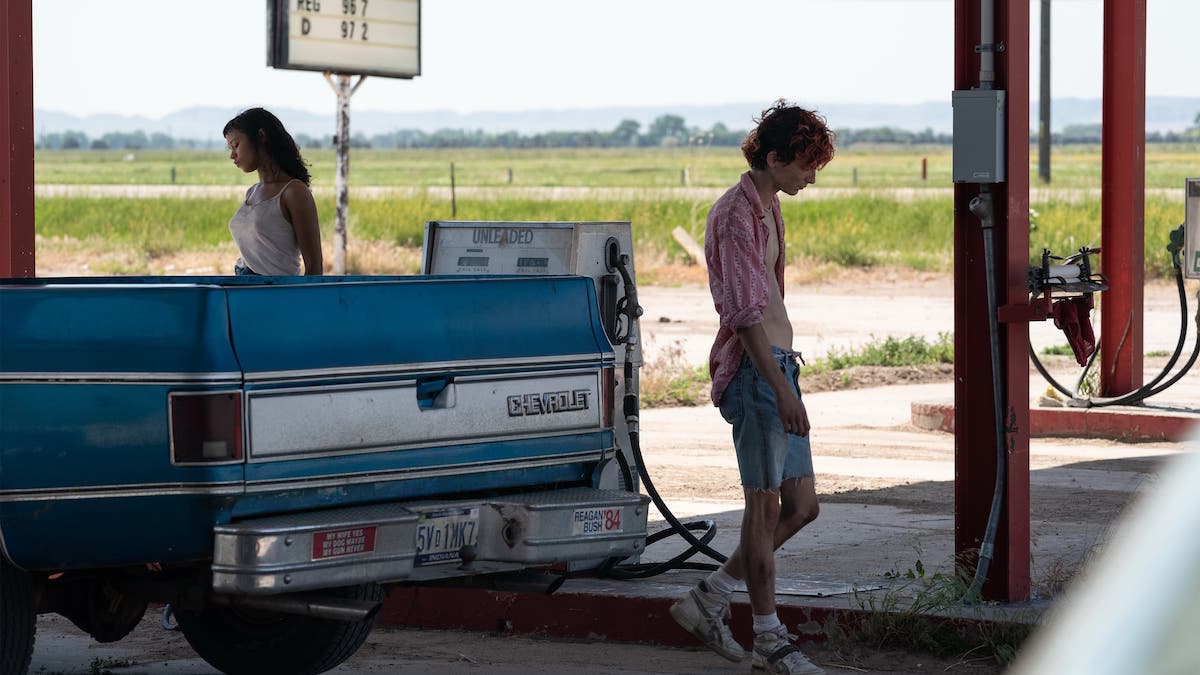
Neither of these fine young cannibals seems to exactly enjoy being what they are, but though Maren expresses doubts and they make some attempts to minimise the harm they do (e.g. only targeting single people without families), they don’t until later on try to completely stop either.
Guadagnino has horror credentials with his 2018 remake of Dario Argento’s Suspiria (1977), but the film Bones and All most resembles is Guadagnino’s own 1980s-set drama of same-sex romance Call Me By Your Name (2017). And not only for the presence in both of Chalamet and Michael Stuhlbarg—even if Chalamet’s character here bears a strong resemblance to his teenage boy from Call Me By Your Name.
Though the settings and storylines are different the mood is similar, and the eroticism is equally physical (some of the eating in Bones and All is as intense as the stunning scene in Call Me By Your Name where Chalamet wraps his head in Armie Hammer’s discarded shorts), and both films share many underlying themes: loneliness and need, the persistent gap between children and even the most loving parents, and the way secrets can dominate a life. “Is it better to speak or to die?” Chalamet’s mother (Amira Casar) reads from a medieval text in Call Me By Your Name, and the principal characters in Bones and All face the same dilemma of whether to acknowledge their true selves.
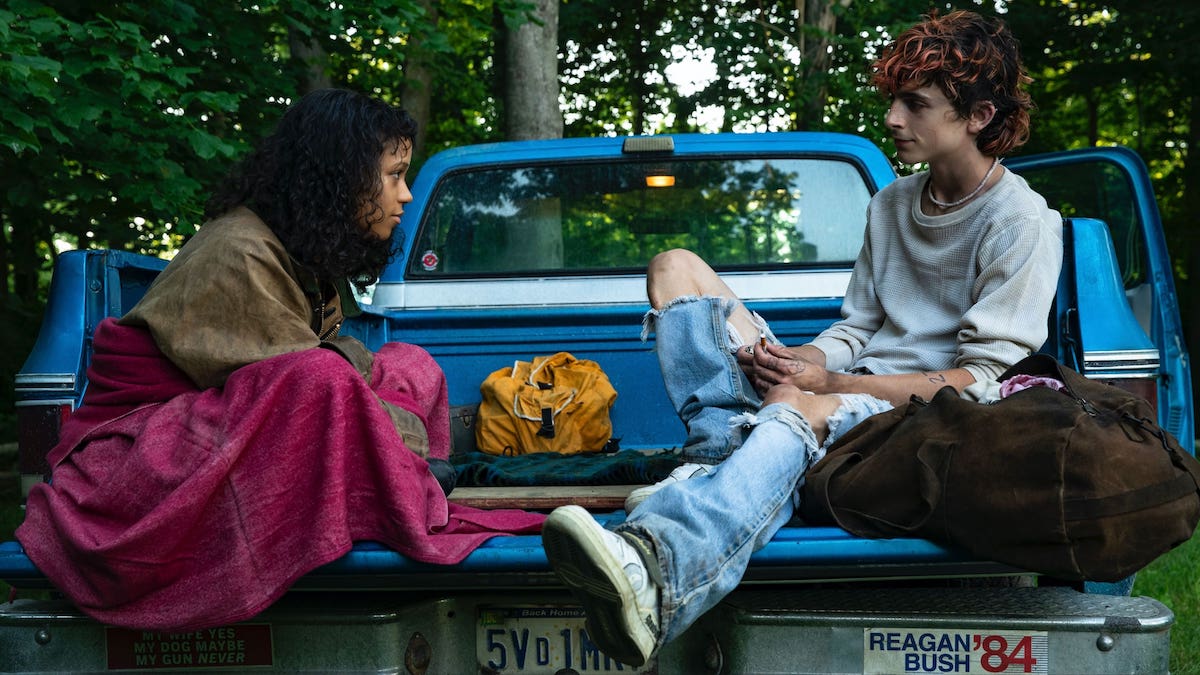
All this is gorgeously shot by Arseni Khachaturan, who gives even the most mundane small-town streets or rural highways a decrepit beauty. Scuffed white paint on the classical columns (so symbolic of American ideals) in a Pennsylvania town beneath which Maren is sheltering when Sully first approaches her, seems to signify the decay of the national dream, as does the constant complaining on talk radio in the background, and of course the eaters’ own addiction to a kind of murderous consumerism. Trent Reznor and Atticus Ross, meanwhile, contribute a music score which is effective when it comes suddenly to the fore at dramatic moments, though it can be a little derivative at more sentimental moments.
And the acting throughout is top-notch, not only from the two protagonists but also notably from Jessica Harper as Maren’s grandmother and Rylance as Sully. At first, Sully might come over as a little too extravagantly weird a character, but his eccentricities—a jacket covered in badges, a feather in his hat, the habit of referring to himself in the third person—are making an important point: he is what someone becomes when they’ve spent their entire life isolated from others by a huge secret. He is Maren and Lee’s future. And if the more overt tragedy of Bones and All is focused on the younger couple, it’s equally sad when Maren rejects Sully at one point, suspicious (perhaps rightly, perhaps not) of this older man’s keen interest in her. They are both outsiders, but that doesn’t mean they always empathise with each other.
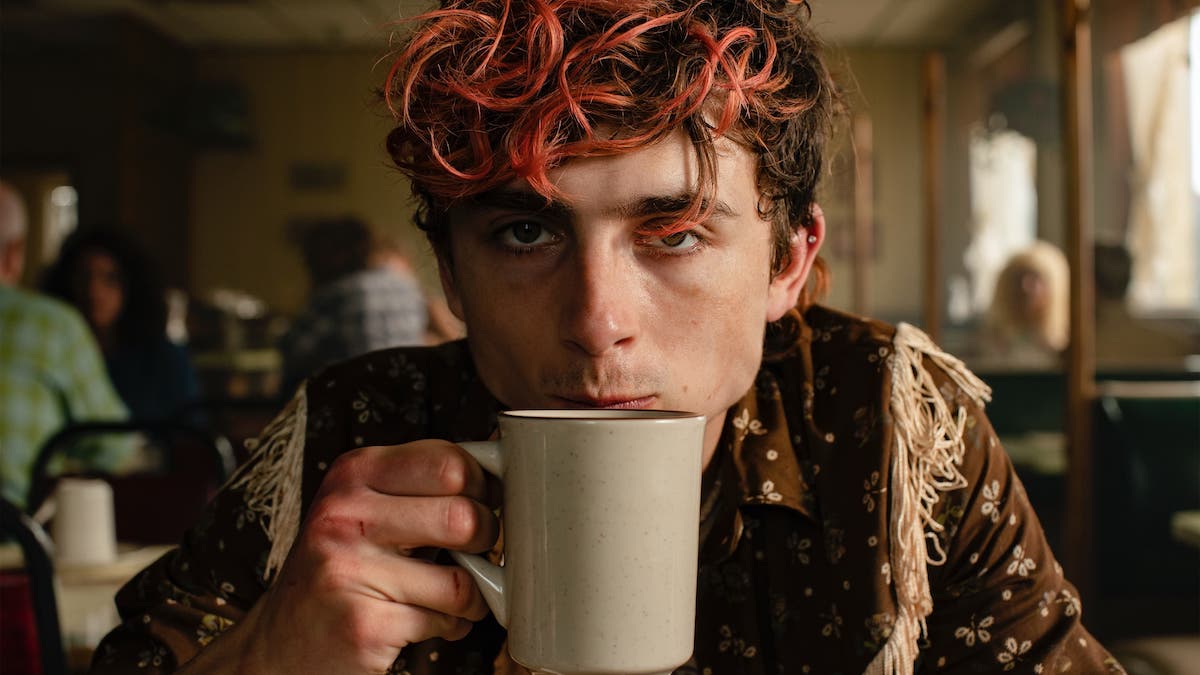
Interpreting the film this way, with the eaters representing a socially excluded minority, seems a no-brainer. But DeAngelis (whose 2015 source novel I haven’t read) reportedly approached the story from a very different angle, concerned with issues of veganism and animal rights: what is it acceptable to eat? Why do Maren and Lee and Sully agonise over exactly what’s permissible in terms of killing people while Lee tucks into bacon without a second thought?
The question comes up repeatedly. One minor character, Brad (Halloween Ends director David Gordon Green), who’s a cannibal by choice rather than necessity, is presented as being morally distinct from the protagonists, who seemingly can’t control their urges (though the film’s unclear as to whether they actually physically need to eat people to survive). “I don’t want to hurt anybody,” says Maren. “Famous last words,” replies the more experienced and cynical Lee.
But even if scenes like a Lee-Maren conversation set in a slaughterhouse suggest parallels between meat-eating and man-eating, the subject isn’t the obvious takeaway from Bones and All, at least to the casual viewer; cannibalism is so beyond the pale that most of us don’t perceive it as being on the same moral continuum as the eating of animals (even if a vegan might argue we should).
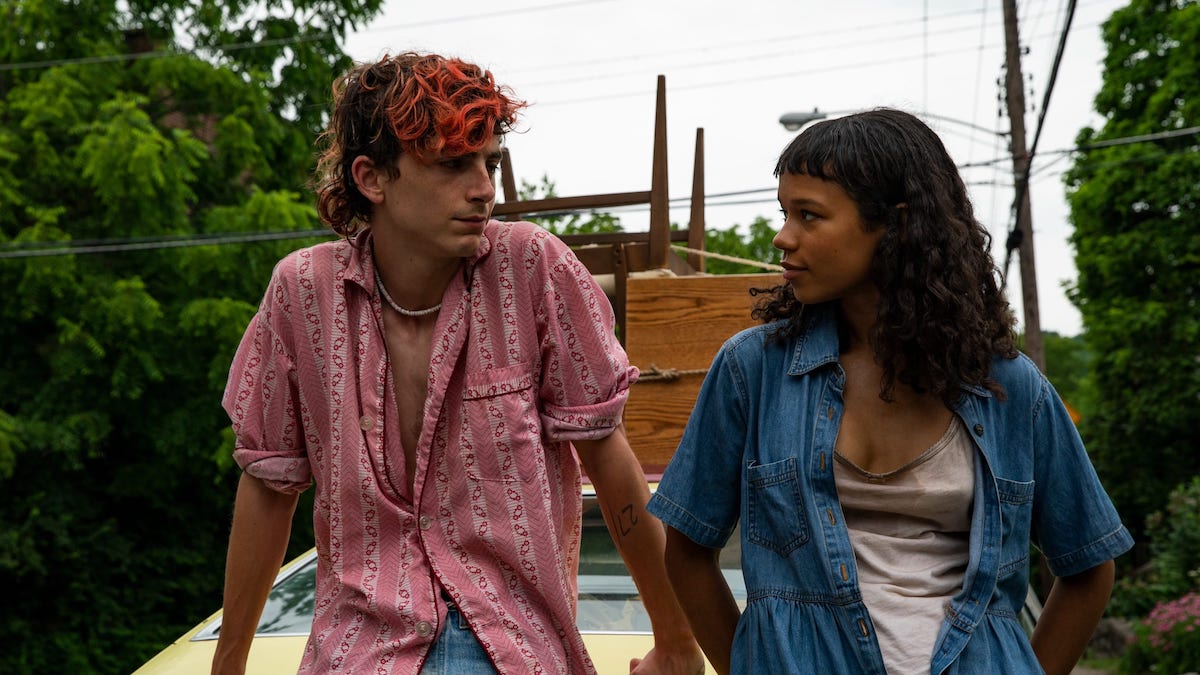
Moreover, the movie will (despite its 18-certificate rating in the UK) surely appeal to a YA audience as there’s more than a touch of Twilight (2008) here, and that audience in 2022 is more likely to see it as a parable of difference, particularly in gender nonconformity or sexuality, and the way differences get rejected. “The world of love wants no monsters in it,” one character says.
The character of Lee, in particular, encourages this view of the film: he has an androgynous air and, while he appears to have a physical relationship with Maren, he also picks up and has sex with a male carnival worker (Jake Horowitz), His sister (Anna Cobb) says his shirt makes him look like a “faggot”, and soon afterwards he takes it off; he may be more comfortable with cannibalism than Maren is, but he’s not entirely confident in every aspect of his self. The final killing of another male is overtly sexual too, right down to the victim’s climactic gasp and Lee’s quasi-post-coital exhaustion.
Guadagnino and screenwriter David Kajganich can surely not have been unaware that this is the metaphor many people will take away from the movie, even if it wasn’t the original author’s intended one, and yet its logic is shaky. The point about gender and sexual differences is that they don’t hurt anyone else, whereas eating people rather blatantly does, and on an objective level Maren and Lee are (at least some of the time) selfish psychopaths just as much as they are victims; it would be perfectly reasonable to argue that they should be locked up forever.
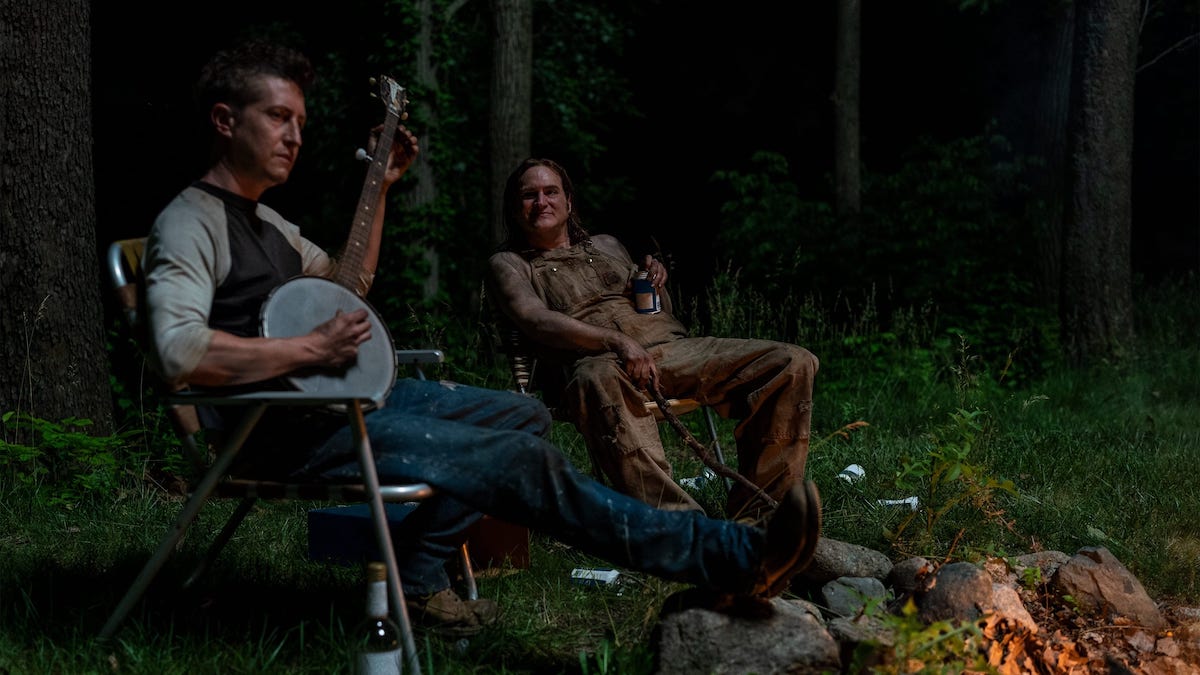
That it can so easily be misinterpreted is not entirely the movie’s fault, however. It may say more about our haste to assume that outsider figures deserve our unconditional support, or to assume that a movie where a lead character isn’t straight is necessarily about sexuality. And in any case, the conflict between what Lee and Maren seem to be—young lovers doomed through no fault of their own—and what they objectively are is interesting in itself, as it is in many vampire movies, of course. The issues raised about eating living creatures are generally thought-provoking ones as well, at least once you recognise they’re there.
Every inch of the film is impeccably made and beautifully performed, too. It’s not quite the straightforwardly bittersweet love story it looks like on the surface, and nor despite its considerable gore is it quite a horror movie, but Bones and All is a fine successor to Call Me By Your Name as well as a noteworthy addition to the queer-vampire subgenre.
ITALY • USA | 2022 | 131 MINUTES | 1.85:1 | COLOUR | ENGLISH

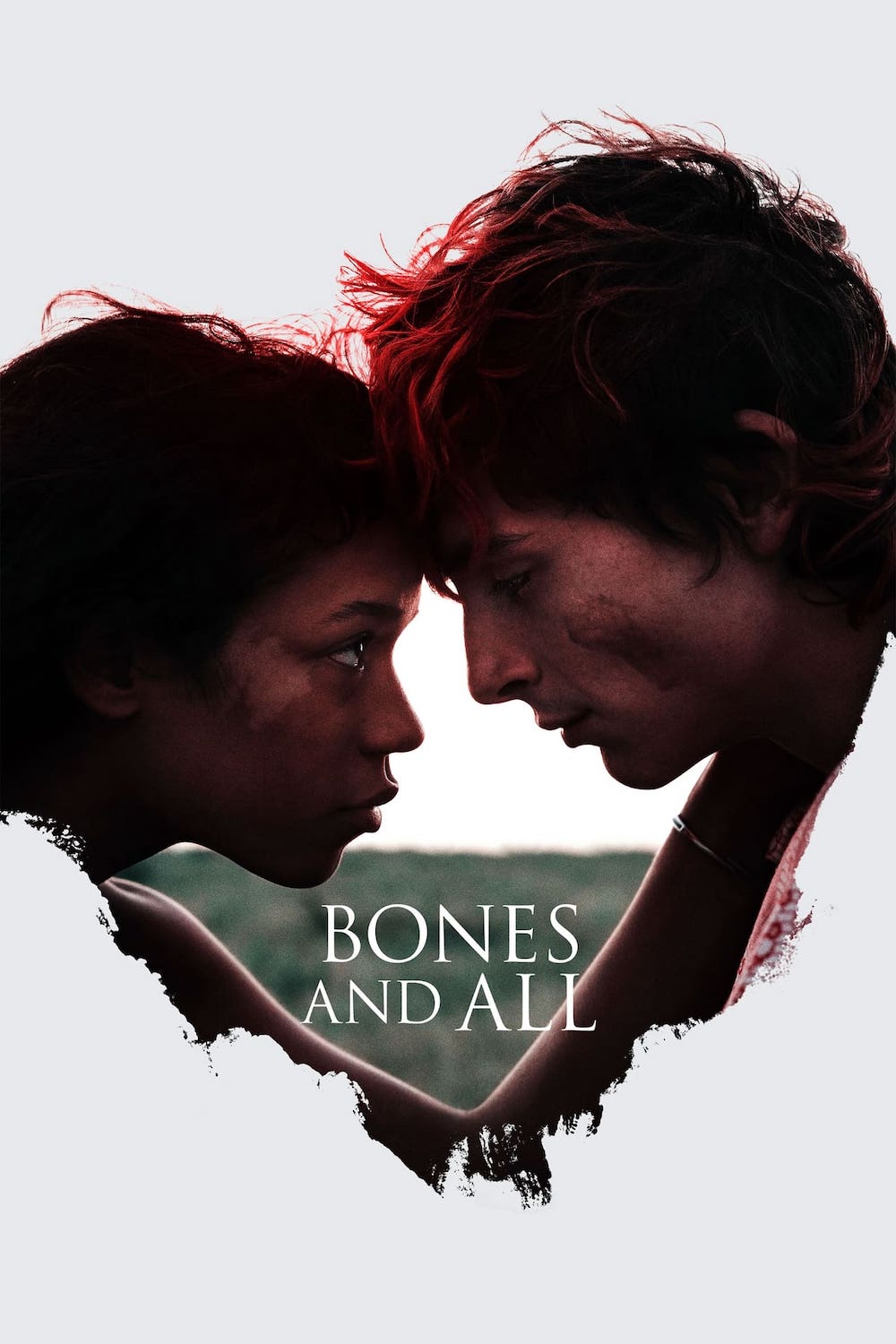
director: Luca Guadagnino.
writer: David Kajganich (based on the novel by Camille DeAngelis).
starring: Taylor Russell, Timothée Chalamet, Mark Rylance, Michael Stuhlbarg & Chloë Sevigny.
